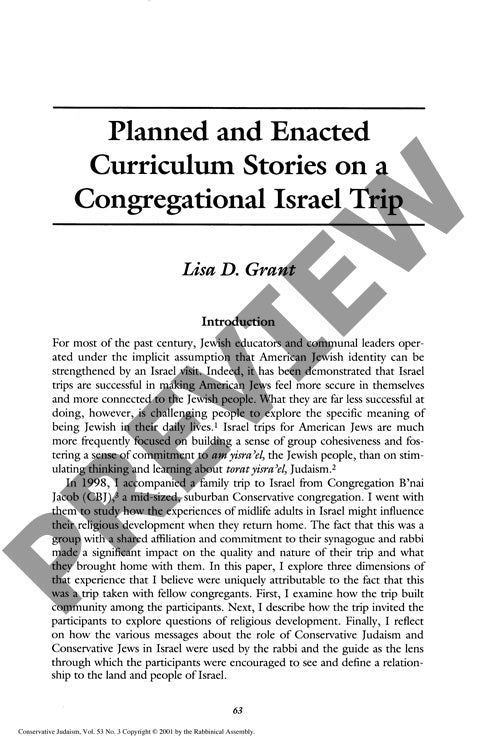Planned and Enacted Curriculum Stories O
Couldn't load pickup availability
This ethnographic study examines the educational dynamics of a congregational Israel trip undertaken by members of a Conservative synagogue in 1998. Using participant observation and follow-up interviews with seven of nine adult participants, the research analyzes how the planned curriculum interacted with the enacted experiences to create meaning for midlife American Jews. The study reveals three central curriculum stories that emerged: building community among congregants, framing the trip as a sacred journey for religious development, and conveying a hidden curriculum about the legitimacy and pioneering role of Conservative Judaism in Israel. The methodology involved maintaining an observational log during the twelve-day trip, analyzing participant journals, and conducting quasi-structured interviews with participants and the rabbi. Key findings demonstrate that congregational trips effectively build intimate community bonds among participants while providing opportunities for religious exploration and growth. The hidden curriculum successfully positioned Conservative Judaism as both historically legitimate and representative of new Zionist pioneering, though participants recognized significant gaps between this idealized vision and Israeli reality. The study concludes that while such trips successfully strengthen symbolic connections to Israel and Jewish identity, their inward focus and emphasis on heritage over contemporary reality may limit deeper engagement with modern Israeli society. The research suggests that congregational trips possess unique potential for adult Jewish education but raises questions about whether more exposure to Israel's complex contemporary dimensions could enhance long-term impact and commitment.

More Information
-
Physical Description
-
Publication Information
Published 2001
ISBN
-
Publication Credits
Lisa Grant

